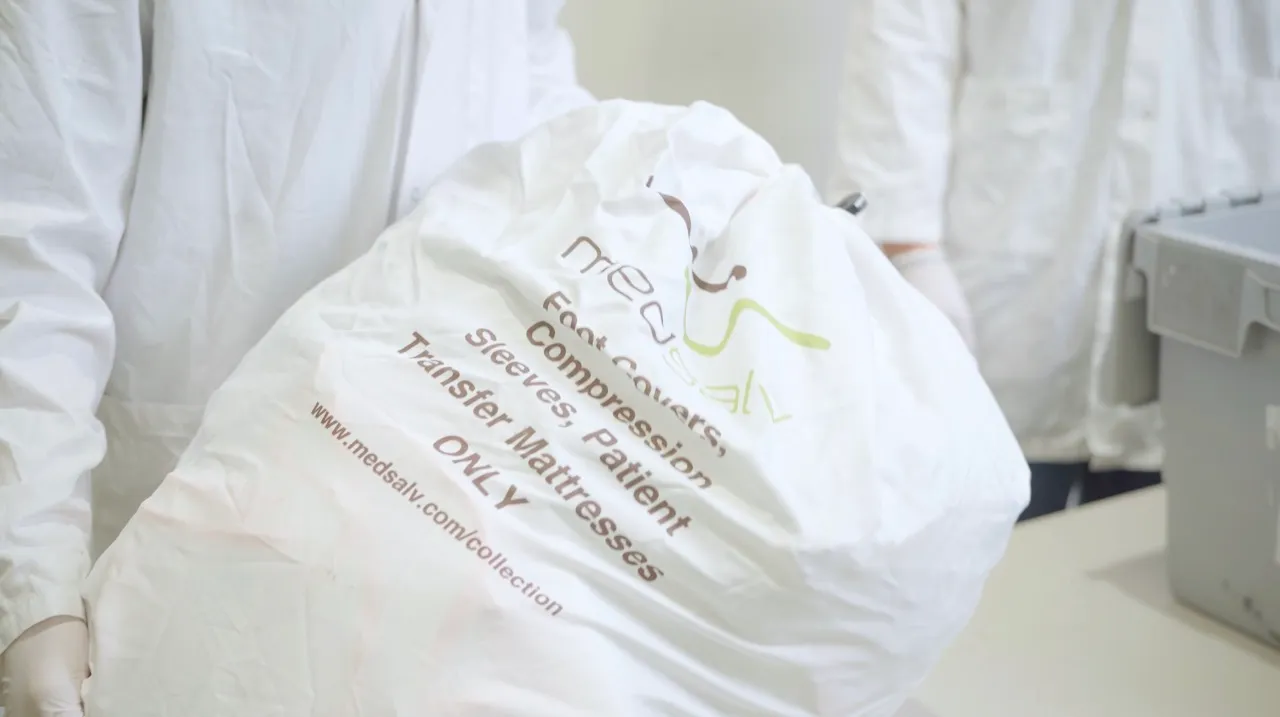Sustainability at
Medsalv
Our unwavering focus goes far beyond fancy corporate brochures, aspirational targets or mandatory disclosures in a report - we're all about successfully driving sustainability into everything we do, and in turn the hospitals we help.
What we bring isn’t a band-aid or a temporary repair for the damage caused by the world's health suppliers - it is real change.
Delivering positive impact now, we are leading the charge to a financially, environmentally and socially sustainable future for health.

We believe sustainability isn’t just about the environment. We've deliberately focused our employment efforts on people facing barriers to employment, in areas close to health services, at fair wages, with clear career development pathways. Medsalv is making a real and lasting impact on communities.
Inspired by Kilmarnock Enterprises, from day one, our remanufacturing processes are designed to enable a more diverse group of people to participate in the workforce through real opportunities. Our remanufacturing processes are not just designed for efficiency, but to be accessible to a wide range of talent too.
More than 30% of Medsalv’s total workforce have overcome some form of barrier to employment to join our team.
Hear from Leonard, our New Zealand Clean Room Team Leader, below:
Every device we remanufacture is one less device that ends up in a landfill. Our processes can reduce the waste of single-use devices in the healthcare system by 92.8%, diverting thousands of kilograms of waste per year.
Under the current model, devices can’t be remanufactured infinitely, so when they do not pass our stringent testing and inspection processes, we break apart the device taking steps to recycle each component responsibly.
Direct savings: While price varies by product, Medsalv’s remanufactured devices are sold directly to customers at up to 60% off the cost of a new device, delivering clear and significant savings.
Indirect savings: Hospitals can benefit from better pricing due to increased competition. For example, a Dublin, Ohio based competitor reduced their prices from over $50 to less than $20 per product for a New Zealand Hospital after we began remanufacturing devices originally provided by this company at a lower price. Competitive pricing of this nature is difficult to achieve through standard procurement processes.
Waste savings: Medsalv provides free collection of devices, eliminating costs associated with transport, disposal to landfill, waste management within hospitals, and landfill-related carbon emissions.
Our commitment to sustainability extends beyond cost savings and waste reduction; we're also addressing the pressing issue of carbon emissions within healthcare. If the healthcare industry was a country, it would be the world’s fifth largest emitter - and over half of these emissions come from procurement.
Each product used in healthcare and sent to a landfill emits carbon, both during its original manufacture, its transport to and from the hospital and when disposed of in landfills after only one use.
By preventing devices from reaching landfills, we solve one part of the problem. Our remanufacturing process generates significantly less emissions when compared to manufacturing the device from raw materials based on published Life-Cycle Analysis Data. Medsalv’s processes significantly outperform similar remanufacturing processes used by OEMs.
Medsalv’s Carbon Zero and Climate Positive certification covers all mandatory emissions from everything Medsalv does. Any excluded emission sources are too small and insignificant to impact the overall footprint.
Learn how we're certified for good
We take all realistic and possible steps to minimise carbon emissions. However, we acknowledge the limitations of current technology in achieving negative gross emissions. This is why we offset all of our gross emissions, and then an extra 20%.
What does this mean?
It means we’re independently accredited Carbon Zero, and Climate Positive. When your hospital procures a product from Medsalv, not only are you contributing to reduced carbon emissions, you’re also reducing your scope 3 emissions (the indirect emissions a company accumulates from their value chain, including supplier production)! As the majority of healthcare emissions fall under Scope 3, this reduction can make a substantial positive difference.
The United Nations Sustainable Development Goals (SDGs) impact health systems, clean energy, workforce equity and environmental preservation.
Our work directly contributes to 8 of 17 United Nations Sustainable Development Goals.
Less environmental harm to the planet enables better human health, too.










.webp)





.webp)





.webp)





.webp)



